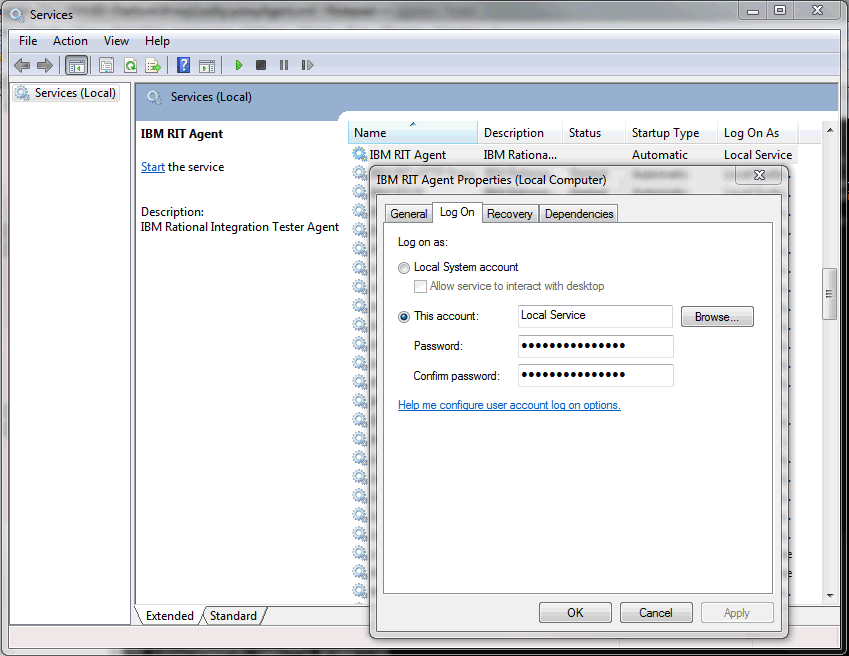Question & Answer
Question
How do you find the log files generated by IBM Rational Integration Tester (RIT) RIT-Agent? What is the default location for instances of RIT-Agent running as a Windows Service?
Answer
Introduction
When problems occur in IBM Rational Integration Tester's Agent (RIT-Agent) it can be useful to view the associated log files. By default these are located in the home folder of the user running the RIT-Agent and are named ibm-rita*.log
Locating the users home folder on Windows
If the Agent is running as a service then the home folder is the home folder belonging to the user account which runs the service - which is unlikely to be the same as any account which is currently connected and logged in on to the Windows desktop.
If the Agent is running as the currently connected desktop user (e.g. because the Agent has been launched from the command line) then the users home folder should be given in the USERPROFILE environment variable. This can be reached from the command prompt with the following command:
cd %USERPROFILE%
The home folders for the Windows system accounts
Look in control panel, services and double click the "IBM RIT Agent" item to see the details of the account used to run the service, which are found on the Log On tab.

For the Local System Account (as for the radio button NOT selected in the screen-shot above) the home folder should be:
C:\Windows\System32\Config\systemprofile
For the Local Service Account (as in the screen-shot above) the home folder should be:
C:\Windows\ServiceProfiles\LocalService
Locating the users home folder on Linux or Unix
On Linux and Unix computers the home folder can found from the command prompt with this command.
cd ~
This will take the command prompt to the current users home folder.
The formal method for finding the logs
If the log files are not found in the above location (or the log files found in the above location are not recent implying the recent logs have been written elsewhere) then this process will formally locate the logs.
Look in the Agent.ini in the same location as the Agent.exe (or Agent binary for non-Windows systems) and find the line which defines the logging properties file, e.g.
-Djava.util.logging.config.file=./Agent.properties
Then look in the logging properties file and find the line which defines the loggers and check that it includes a log to file, e.g.
handlers= java.util.logging.FileHandler, java.util.logging.ConsoleHandler
Finally look at the item in the logging properties file which defines the log location, e.g.
java.util.logging.FileHandler.pattern = %h/ibm-rita%u.log
Note that the substitution values (% followed be a single letter) are explained in the comments in the logging properties file.
Was this topic helpful?
Document Information
Modified date:
11 July 2019
UID
swg21691511